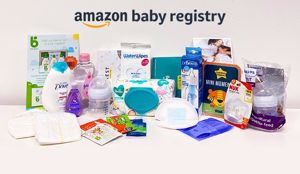There are so many options on the market for purchasing baby products. Let’s discuss baby sleep sacks and swaddles, how they work, and why you might want them. Ultimately, the best way to know if a baby product will work is by trying it out on your baby.
Some of the best ways to afford this are purchasing used items from thrift stores or the marketplace, accepting hand-me-downs when offered, and asking to borrow from a friend or family member.
Sleep Sacks
Sleep sacks are a bodysuit made of blanket material with a hole for the head and arms. Sleep sacks offer a safer way to keep an infant warm at night because, unlike a blanket, a correctly fitted sleep sack cannot get up and around the infant’s airway.
Sleep sacks can be most related to an adult sleeping bag, and if you look for it, there are sleep sacks made from sleeping bag material for families that enjoy camping with young babies.
Swaddles
The next type of sleeping sack is more of a swaddle than a sleeping sack. Let’s be real: swaddling can be challenging to learn, and so many babies have figured the system out and know how to get their arms free or unravel the swaddle completely.
Traditional swaddles are also not the most beneficial for nursing infants because they restrict the infant's hands, a tool they use to encourage milk ejection.
Classic swaddles are also unsafe for co-sleeping as they limit the infant’s limbs and make it harder for them to push off of things restricting airways. Lastly, infants use their hands to help them self-soothe, and most traditional swaddles restrict access to their hands. For this reason, I love the swaddle systems like “Love to Dream,” “Happiest Baby,” “Omni Swaddle,” and other systems like these.
Benefits of Sleeping Sacks and Swaddling Systems
These swaddling systems mentioned above allow for the infant’s hands to be up by their face but have enough resistance that the startle reflex is stopped. I also love the ease of these systems. Unlike traditional swaddling methods, they usually have a zipper and take one or two steps to finish. The other significant part about these swaddles is that they encompass the sleep-sack qualities of keeping your baby warm at night.
One cool thing about the “Love to Dream” swaddle is that it has zippers on the arm sleeves that allow for a slow transition from swaddling to being in a sleep sack. I am always a sucker for something that will grow with my child, so that was a huge selling point.
Sleeping sacks and swaddling systems are much better for a developing infant’s hips. Sometimes, traditionally, swaddling can lead to hip problems. Sleep systems that allow infants to sleep with their hands up by their head also encourage their natural, relaxed position, often taken when sleeping, and provide for their hands to help soothe them back to sleep when disturbed.
Things to Consider
When thinking about sleeping units like sacks or swaddling systems, it is crucial to consider the temperature of where your infant is sleeping. For some of these systems, different fabrics are used for different environments. Other times, it is more of a one-fabric fits-all.
Remember that infants can sleep with the same amount of layers as you do, so if they are in super-hot pajamas and a sleeping back-designed sleep sack inside a house, it might get too hot and vice versa.
Whether a sleep sack or swaddle system is suitable for you and your baby will be directly guided by your life and your baby’s unique wants and needs. You know there are options for safer warmth at night, and an easier way to swaddle gives you the power to decide how to sleep with your little one. Happy Sleeping!







